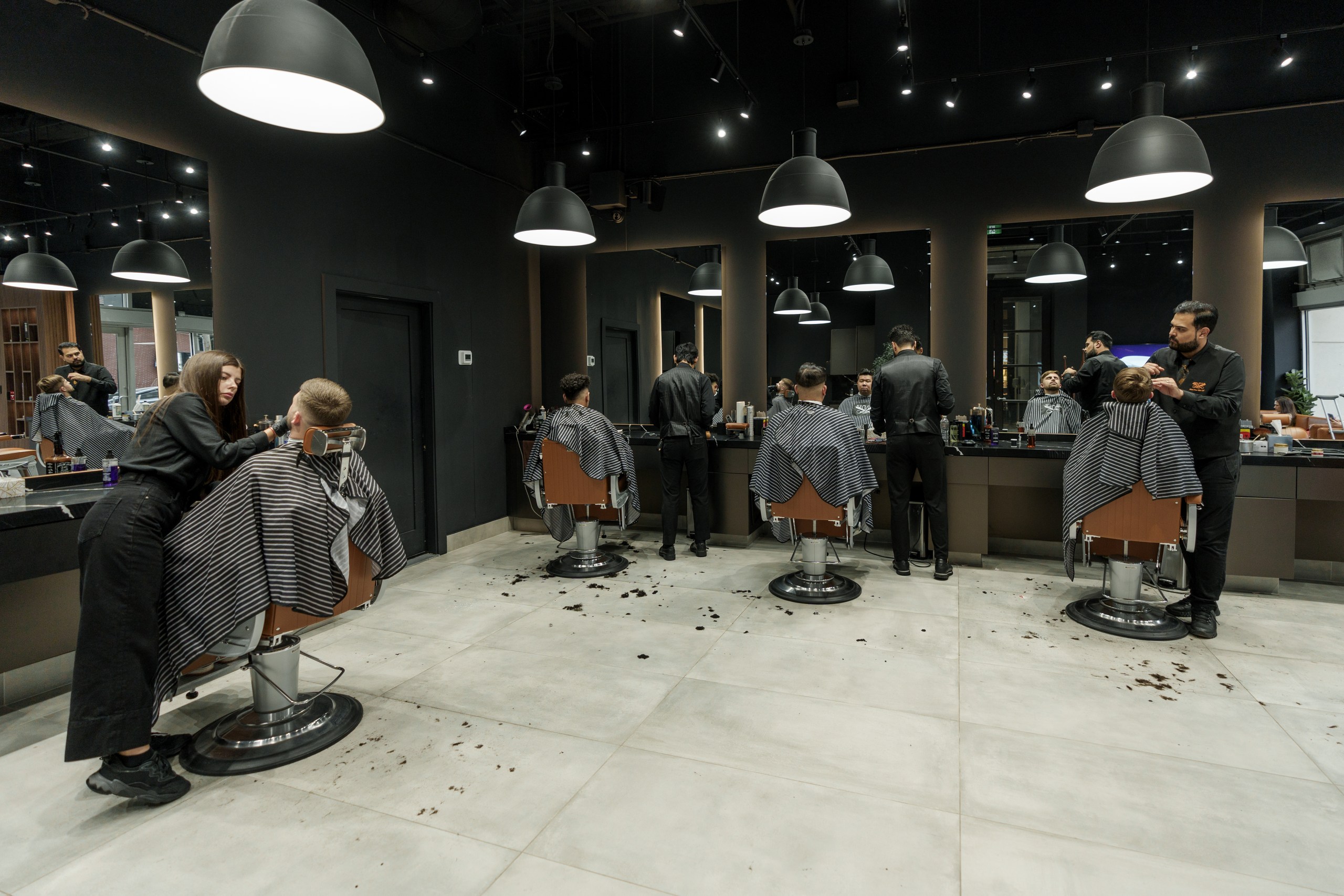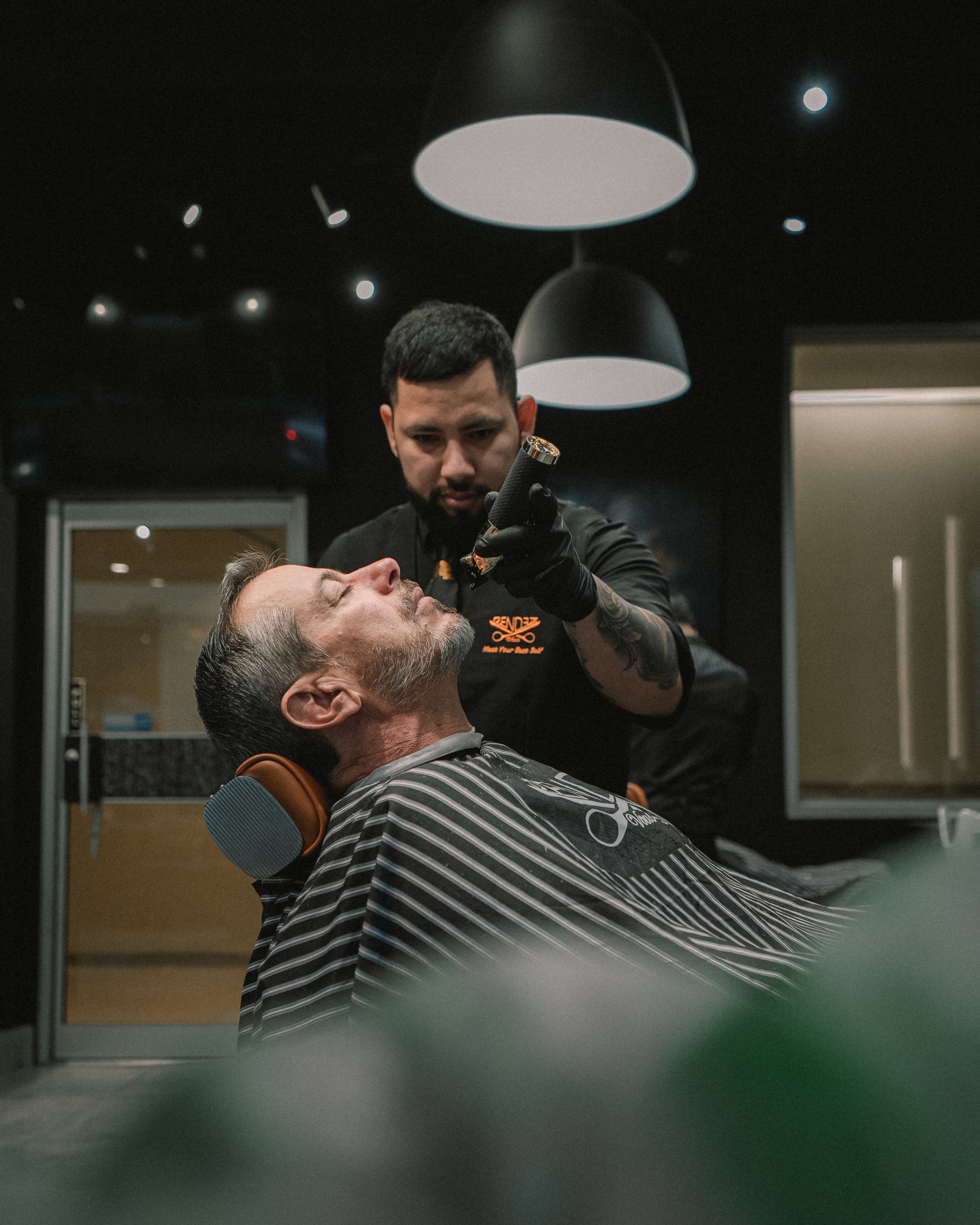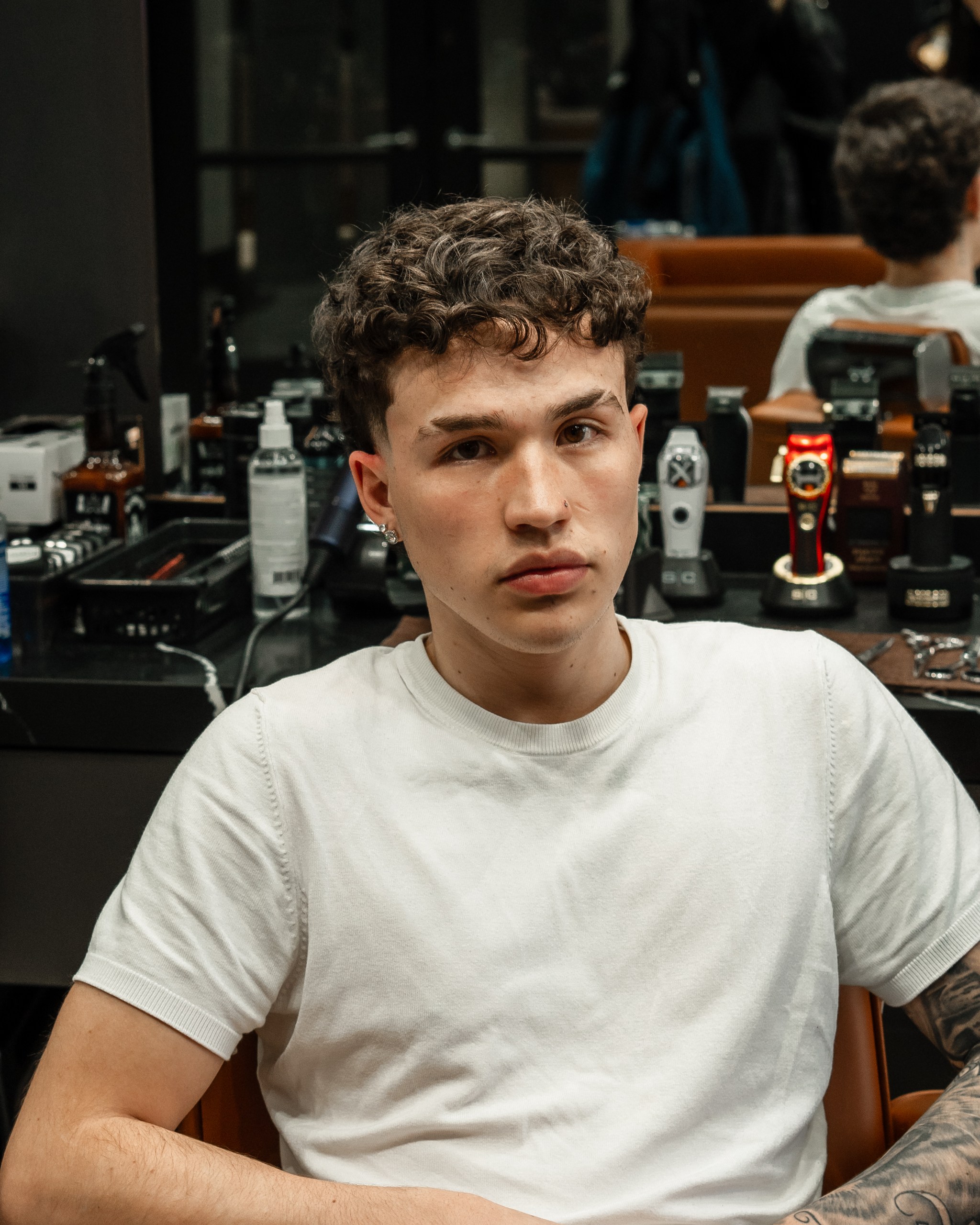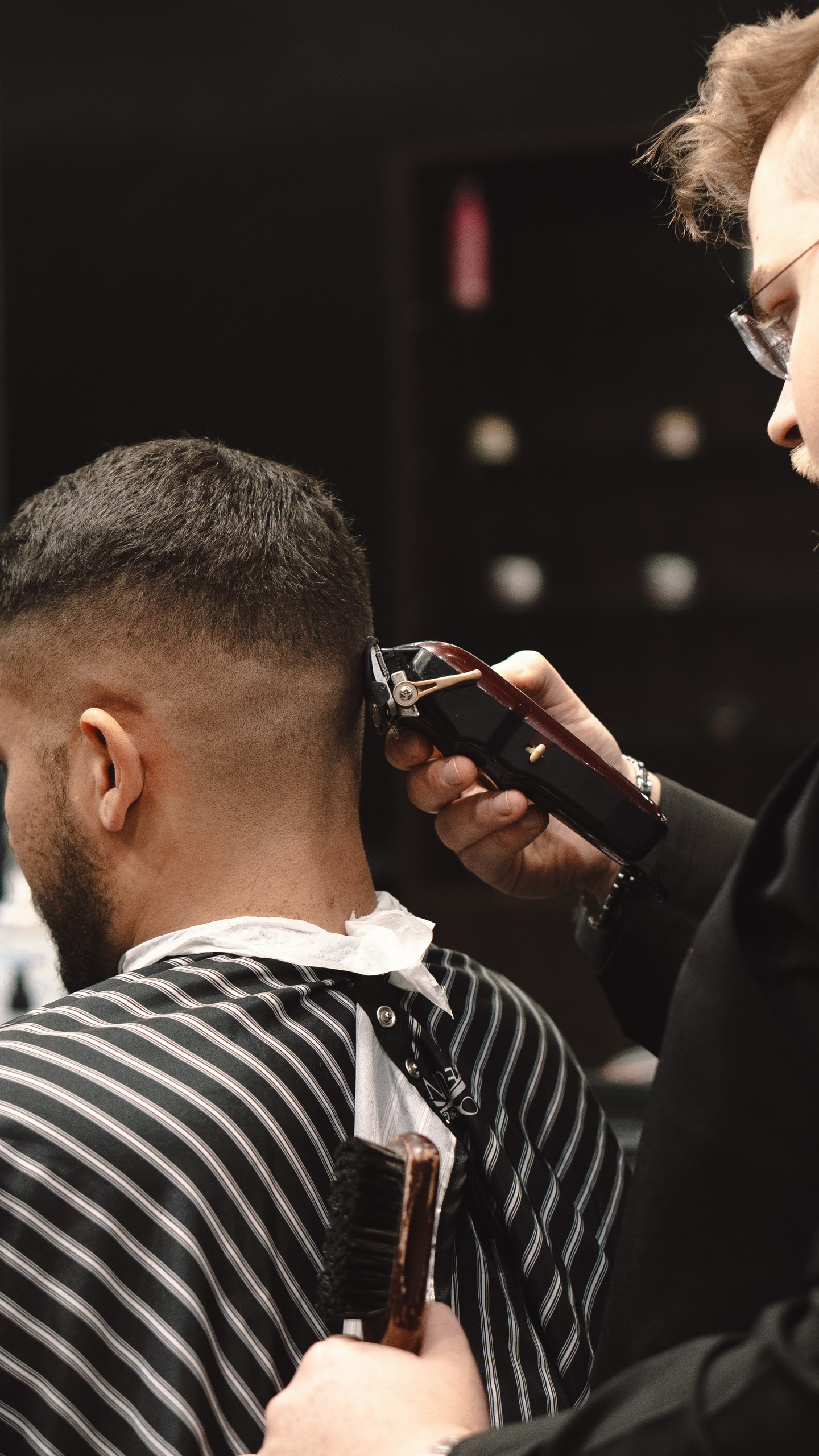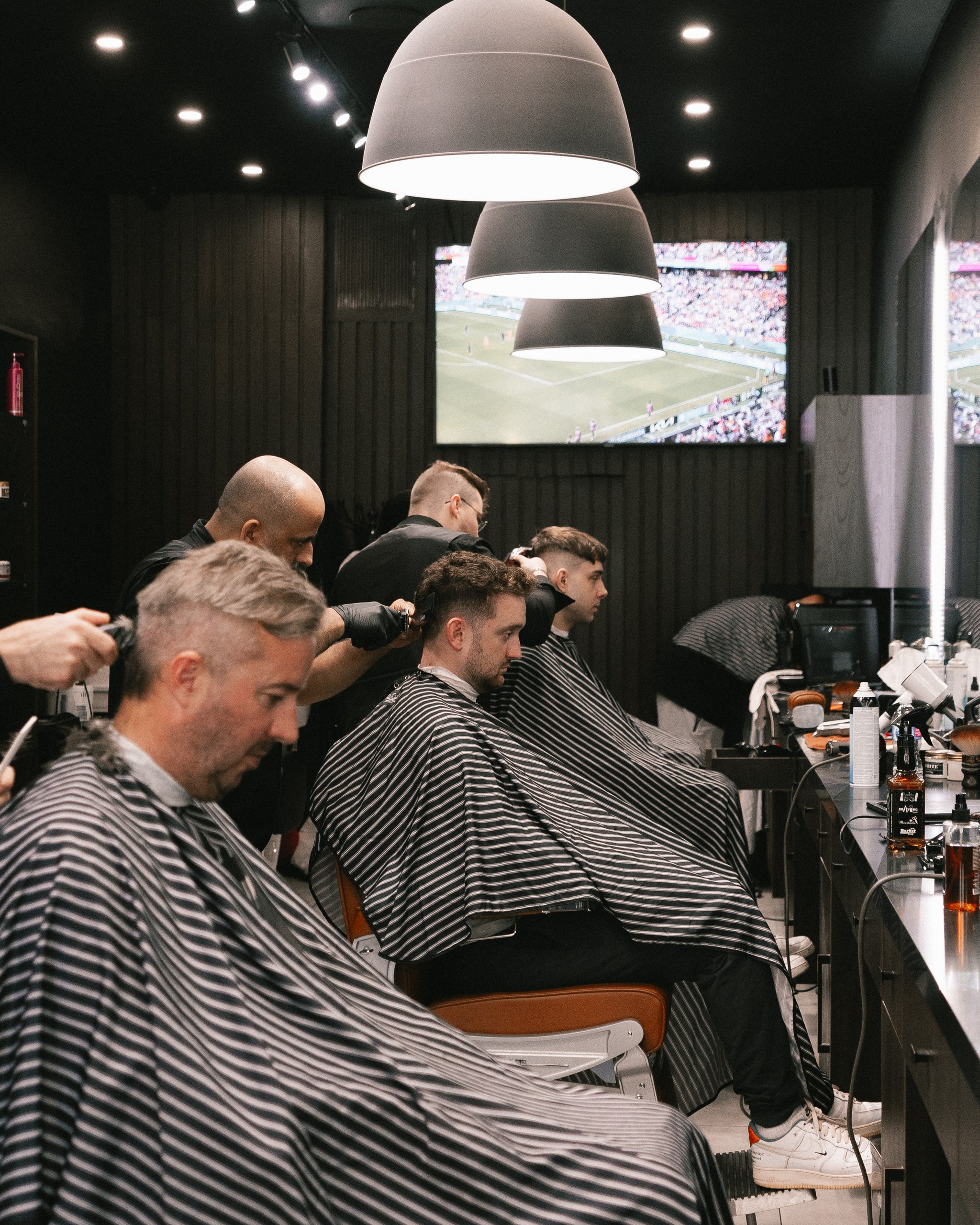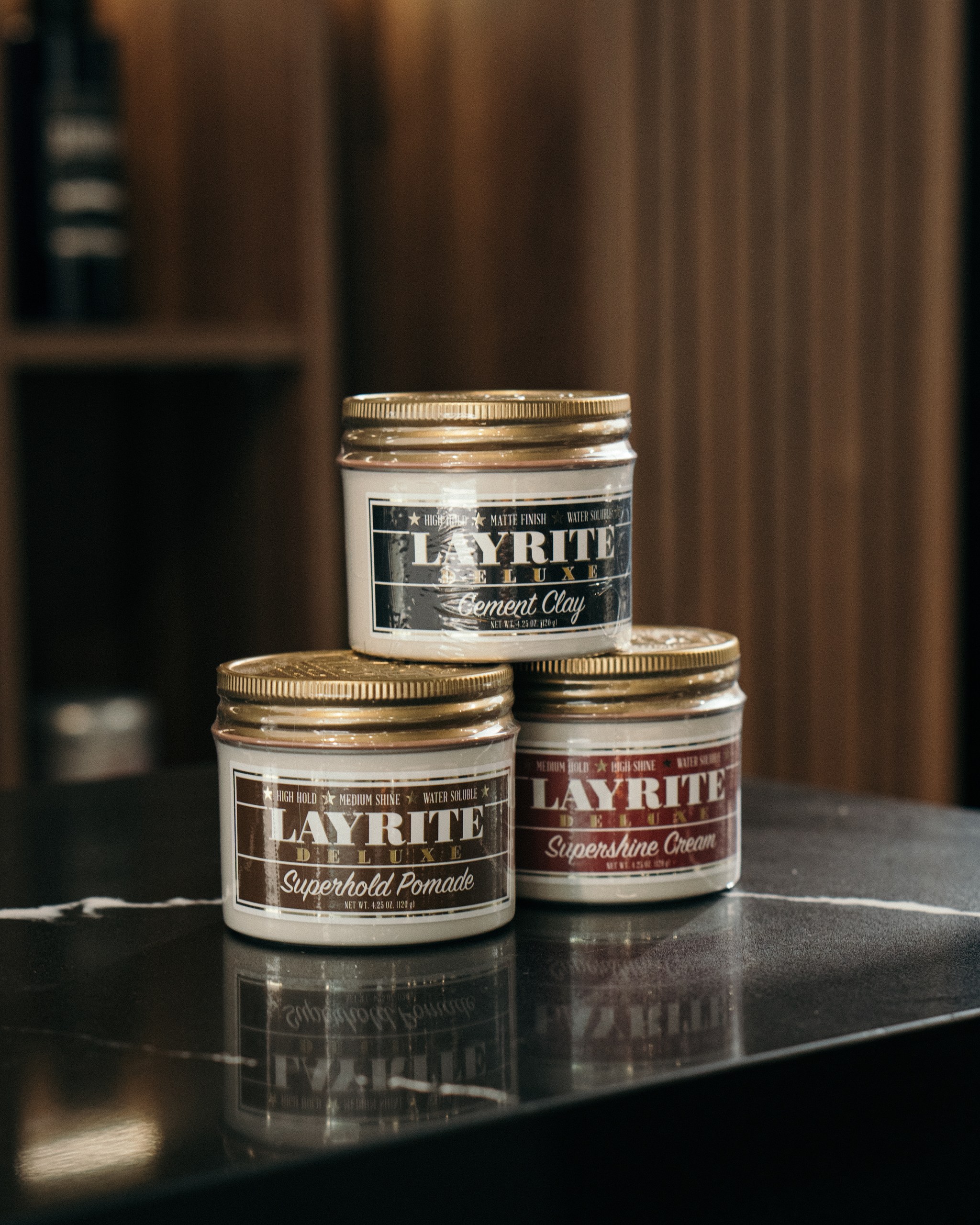The supplement industry has discovered something brilliant about men and hair loss: desperation sells. Faced with thinning hair, most guys will try anything that promises results, especially if it seems easier than prescription medications or expensive procedures.
This desperation has created a billion-dollar market for hair vitamins, supplements, and "natural" solutions that promise to restore your hairline from the inside out. The marketing is sophisticated, the testimonials are compelling, and the science-sounding ingredient lists make everything seem legitimate.
At Rendezvous Barbers, we watch this supplement cycle play out constantly. Guys come in excited about their new hair vitamin regimen, convinced they've found the secret that doctors don't want them to know. Six months later, they're disappointed and frustrated, wondering why their expensive supplements didn't deliver the promised results.
The reality is that most hair vitamins are essentially expensive multivitamins with inflated claims and premium pricing. Understanding which nutrients actually affect hair health helps you separate legitimate supplements from marketing-driven money grabs.
The Biotin Obsession
No ingredient gets more attention in hair supplement marketing than biotin. Scroll through any hair vitamin advertisement and you'll see massive doses of biotin prominently featured, often at levels thousands of times higher than what your body actually needs.
Biotin is a B vitamin that plays a role in keratin production, the protein that makes up your hair. This legitimate biochemical connection has been twisted into claims that more biotin equals more hair growth, stronger hair, and thicker strands.
The biochemical reality is more mundane. Biotin deficiency can cause hair loss, but true biotin deficiency is extremely rare in developed countries. Most people get adequate biotin from normal diets, making supplementation unnecessary for hair health.
When researchers actually test biotin supplementation in people with normal biotin levels, the results are consistently disappointing. Multiple studies show no improvement in hair growth, thickness, or quality when biotin is given to people who aren't deficient.
The massive doses found in hair vitamins create another problem entirely. Excess biotin can interfere with laboratory tests, potentially causing false results for thyroid function and cardiac markers. Some guys taking high-dose biotin supplements have gotten incorrect medical test results that suggested serious health problems.
Your kidneys efficiently excrete excess biotin, which means those 10,000 mcg hair vitamins are literally producing expensive urine rather than better hair.
The Collagen Marketing Machine
Collagen supplements represent another triumph of marketing over science in the hair vitamin world. The logic seems reasonable: collagen provides structure for skin and hair, so consuming collagen should improve hair health.
This reasoning falls apart when you understand basic digestion. Collagen proteins are broken down into individual amino acids during digestion, just like any other protein you consume. Your body doesn't recognize that these amino acids came from collagen supplements versus chicken breast or any other protein source.
Your body produces collagen naturally using amino acids from your diet, along with vitamin C and other cofactors. If you're consuming adequate protein from normal food sources, collagen supplements provide no additional benefit for hair health.
The studies frequently cited by collagen supplement manufacturers typically show improvements in skin hydration or elasticity, not hair growth or thickness. Even these skin studies often have significant methodological flaws or are funded by supplement companies with obvious conflicts of interest.
Marine collagen, bovine collagen, and hydrolyzed collagen are all marketing variations on the same theme. Once digested, they're all just amino acids that your body uses however it needs them, regardless of their original source.
Iron: When Deficiency Actually Matters
Unlike biotin and collagen, iron deficiency genuinely affects hair health in measurable ways. Iron plays crucial roles in cellular metabolism and oxygen transport that directly impact hair follicle function.
Iron deficiency anemia can cause diffuse hair thinning, increased shedding, and changes in hair texture. This creates a legitimate market for iron supplementation in people with documented deficiency.
However, iron supplementation in people with normal iron levels provides no hair benefits and can actually be harmful. Iron is toxic in excess, and supplementing without deficiency can cause gastrointestinal problems, interfere with other mineral absorption, and potentially contribute to cardiovascular problems.
The hair vitamin industry has seized on iron's legitimate connection to hair health to justify including it in general hair supplements, often without recommending testing to determine if supplementation is actually needed.
Most men get adequate iron from diet alone, particularly if they consume meat. Iron deficiency is more common in women due to menstrual losses, making iron supplementation less relevant for the male market that hair vitamins primarily target.
Testing iron levels before supplementing is medically appropriate, but hair vitamin marketing rarely emphasizes this important step.
Zinc and the Trace Mineral Game
Zinc deficiency can cause hair loss, making it another legitimate target for hair health supplementation. Like iron, this real biochemical connection has been exploited to justify zinc inclusion in hair vitamin formulations.
Zinc deficiency is relatively uncommon in developed countries among people eating varied diets. Most cases occur in individuals with absorption problems, severe dietary restrictions, or certain medical conditions rather than simple inadequate intake.
Zinc supplementation in deficient individuals can improve hair health, but supplementation in people with adequate zinc levels provides no additional benefit. Excess zinc can interfere with copper absorption, potentially creating new nutritional imbalances.
The doses of zinc found in many hair vitamins are higher than recommended daily amounts but lower than levels that cause obvious toxicity. This creates a profitable middle ground where manufacturers can claim therapeutic benefits without immediate adverse effects.
Hair vitamin formulations often include multiple minerals that compete for absorption, potentially reducing the effectiveness of any individual mineral. This interaction is rarely discussed in marketing materials but can significantly impact supplement efficacy.
Vitamin D: The Sunshine Connection
Vitamin D deficiency has been linked to various forms of hair loss, creating another legitimate target for supplementation in deficient individuals.
Toronto's latitude and climate create conditions where vitamin D deficiency is relatively common, particularly during winter months when sun exposure is limited. This geographic factor makes vitamin D supplementation more relevant for Toronto residents than for people living in sunnier climates.
However, vitamin D's connection to hair health is complex and not fully understood. While deficiency can contribute to hair problems, supplementation doesn't necessarily reverse hair loss or improve hair growth in people with adequate levels.
The vitamin D doses found in most hair vitamins are modest compared to therapeutic doses used to treat deficiency. This creates a situation where the supplement provides enough vitamin D to justify marketing claims but not enough to address significant deficiency if it exists.
Testing vitamin D levels and supplementing based on results makes more medical sense than assuming hair vitamins will provide adequate amounts for deficient individuals.
The Saw Palmetto Deception
Saw palmetto extract frequently appears in hair vitamins marketed toward men, based on claims that it can block DHT production and slow hair loss.
Some small studies suggest saw palmetto might have mild effects on DHT levels, but the evidence is weak and inconsistent. The doses used in these studies are typically much higher than what's found in general hair vitamin formulations.
More importantly, even if saw palmetto has minor effects on DHT, this doesn't translate into clinically meaningful improvements in hair loss. The mechanism of male pattern baldness is complex, and simply reducing DHT levels slightly is unlikely to produce noticeable results.
Marketing materials often present saw palmetto as a "natural alternative" to finasteride, but this comparison is misleading. Finasteride has been extensively studied and shown to be effective in clinical trials, while saw palmetto has limited and inconsistent evidence.
The inclusion of saw palmetto in hair vitamins allows manufacturers to market their products as targeting the "root cause" of hair loss while avoiding the regulatory scrutiny that would apply to actual DHT-blocking medications.
The Multivitamin Reality
Strip away the hair-specific marketing and most hair vitamins are essentially expensive multivitamins with inflated claims.
A quality multivitamin typically costs a fraction of specialized hair vitamins while providing similar or superior nutritional content. The premium pricing for hair vitamins comes from marketing rather than superior formulation.
Some hair vitamins actually provide inferior nutrition compared to standard multivitamins because they focus on hair-specific ingredients at the expense of overall nutritional balance.
The psychological effect of taking "hair vitamins" versus regular vitamins might provide some placebo benefit, but this doesn't justify the significant price premium for most consumers.
What Actually Affects Hair Health
Nutrition does impact hair health, but the relationship is more complex than hair vitamin marketing suggests.
Overall protein intake matters more than specific amino acid supplementation. Hair is primarily protein, and inadequate total protein intake can affect hair growth and quality. This is rarely an issue for people eating varied diets that include animal products or complete plant proteins.
General nutritional status affects hair health more than individual vitamin levels in most people. Severe caloric restriction, eating disorders, or very limited diets can impact hair before specific vitamin deficiencies develop.
Underlying health conditions like thyroid disorders, autoimmune diseases, or hormonal imbalances affect hair more significantly than vitamin levels. Addressing these medical issues usually provides more benefit than supplementation.
Stress, sleep quality, and overall health status impact hair more than most people realize. Managing these factors often produces better results than focusing solely on nutrition.
The Testing Alternative
Rather than guessing about vitamin deficiencies, testing can provide actual information about your nutritional status.
Basic blood work can identify iron deficiency, vitamin D levels, and other nutritional markers that actually affect hair health. This information guides targeted supplementation rather than shotgun approaches.
Testing costs are often comparable to several months of hair vitamin supplementation, making it a more cost-effective approach to addressing genuine deficiencies.
Many guys discover through testing that their vitamin levels are normal, allowing them to focus on other factors that might be affecting their hair health.
The Regulation Gap
The supplement industry operates under different regulations than pharmaceutical medications, creating opportunities for misleading marketing.
Supplement manufacturers can make structure/function claims about their products without proving efficacy. Statements like "supports hair health" or "promotes hair growth" don't require clinical evidence of actual results.
The FDA doesn't approve supplements before they reach the market, unlike prescription medications that require extensive testing. This regulatory difference allows ineffective products to be sold legally as long as they don't make specific disease claims.
Quality control in supplement manufacturing varies widely. Some companies produce high-quality products with accurate labeling, while others cut corners on ingredients, potency, or purity.
Making Informed Decisions
Understanding the science behind hair vitamins helps you make better decisions about supplementation.
If you suspect nutritional deficiencies are affecting your hair, testing provides better information than guessing. Addressing documented deficiencies makes more sense than taking supplements prophylactically.
For most men eating varied diets, hair vitamins provide expensive nutrition that's already available from food sources. The money spent on specialized hair supplements might be better invested in overall health, stress management, or proven hair treatments.
Focus on factors that actually impact hair health: overall nutrition, stress management, adequate sleep, and addressing underlying health conditions. These approaches typically provide better results than supplementation alone.
Conclusion
The hair vitamin industry thrives on hope and desperation, offering simple solutions to complex problems. While certain nutrients genuinely affect hair health, most hair vitamins provide expensive nutrition that doesn't translate into better hair outcomes.
Understanding the science behind these products helps you separate legitimate nutritional needs from marketing-driven supplementation. Your money and attention are probably better spent on proven approaches to hair health rather than chasing supplement solutions.
Book your appointment today and discover how proper cutting and styling can make your hair look its best, regardless of your supplement routine. For honest advice about what actually makes a difference in your hair's appearance, visit Rendezvous Barbershops. Because when you look good, you feel good.


